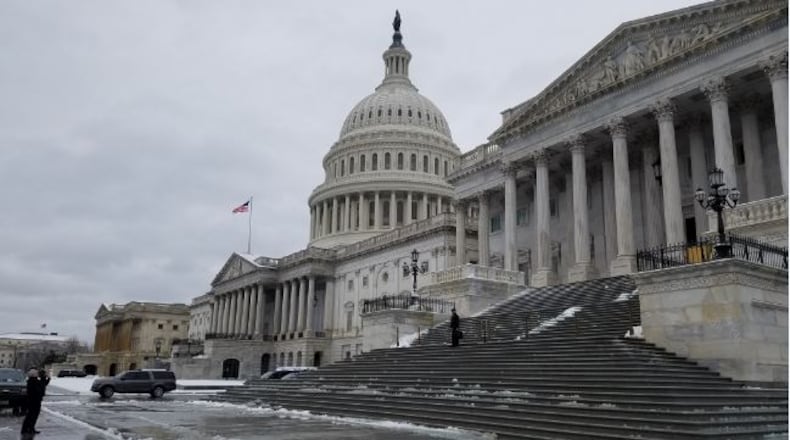A day after a Congressional Budget Office report stirred debate on a new GOP health care bill, the White House again tried to raise doubts about the CBO projections, as Republicans in the House and Senate continued to struggle with how best to forge a health care deal that could make it to the President's desk.
White House Press Secretary Sean Spicer said CBO attempts to figure out coverage levels under the Obama health law have been "historically faulty," as he disputed the CBO finding that the GOP plan would mean 24 million fewer Americans would have insurance coverage in ten years.
"In 2013, the CBO estimated that 24 million people would have coverage under Obamacare in 2016," Spicer told reporters.
"The were way off - they were off by 13 million people, over 50 percent."
Spicer also pointedly criticized the CBO for giving an estimate on cost and coverage for the GOP health care effort, by not evaluating two other phases of this Republican work.
"CBO coverage estimates are consistently wrong and more importantly did not take into consideration the comprehensive nature of the three prong plan to repeal and replace Obamacare," said Spicer.
But details about those two "phases" have not been released by Republicans in Congress or the Trump Administration, so there was no way the CBO could evaluate them.
Those other efforts include what's been dubbed as "Phase 2," which would be new regulations issued by the Department of Health and Human Services related to health insurance coverage - and "Phase 3," which would be a broader health policy bill in the Congress that would likely need 60 votes in the Senate.
Republican lawmakers meanwhile were struggling just to figure out what to do with the first bill, a plan that has made it through two House committees, but is getting more and more negative reviews from conservative GOP lawmakers.
"The Congressional Budget Office’s score does little to alleviate our conservative concerns for this Obamacare replacement bill," said Rep. Mark Walker, (R-NC), the head of the influential Republican Study Committee in the House.
In a statement, Walker singled out the cost of the GOP tax credit plan, which the CBO said would total $361 billion over seven years, and reductions in planned Medicare spending, which some Republicans worry would never be left in place.
In the hallways of the Capitol, there was clearly still the feeling that something must be done.
"If we do nothing, millions of people in my state are going to get hurt," said Sen. David Perdue (R-GA).
"The House bill isn't going to be the final product anyway," said Sen. Marco Rubio (R-FL), who said he was still going through the CBO report.
One thing was also clear from a series of hallway interviews - GOP Senators don't want to be rushed.
"This is difficult," said Sen. John Boozman (R-AR). "My concern is not with the timeline, my concern is with doing it right."
But how the GOP is going to thread the needle on health care reform is still an open question, as not only conservatives are worried by it, but also more moderate Republicans.
"After studying the impact of this proposed legislation on my district and speaking with many of my constituents, I have decided to vote no on the bill as currently written," said Ileana Ros-Lehtinen (R-FL).
"We should work together to write a bipartisan bill that works for our community and our nation without hurting the elderly and disadvantaged among us," Ros-Lehtinen said.
About the Author
The Latest
Featured



